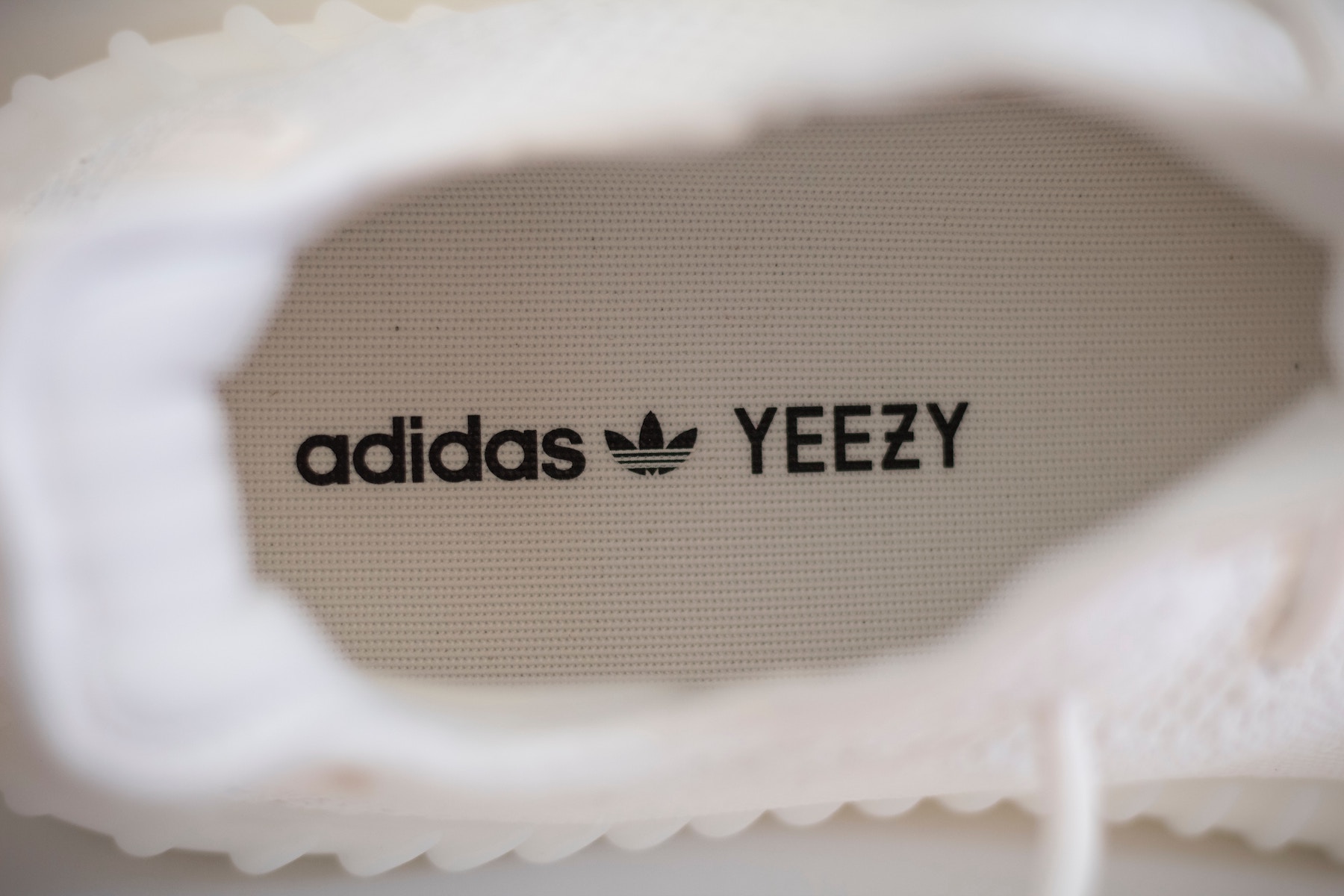
Crisis management in fashion – how to survive a scandal
The fashion industry is no stranger to scandals. Ever since the Rana Plaza factory collapse in 2013, the sector has been under scrutiny for its opaque practices and lack of transparency surrounding supply chains. While companies from fast fashion brands to luxury fashion houses promised to clean up their acts, they continue to be rocked by controversy. With an increasingly aware consumer demanding sustainability and transparency, how can fashion brands reassure the public that their behind-the-scenes activity aligns with their public commitments?
Ambassadors or Embarrassments?
Scandals don’t just damage a brand’s reputation; they can also hit their revenues hard. Both Adidas and Nike were embroiled in antisemitism rows at the end of 2022. Adidas were forced to cut ties with rapper, Kanye West (who now goes by the name of Ye), after a series of antisemitic and pro-Nazi tirades from the celebrity. The outcry that followed demonstrated just how quickly things can change in the world of fashion. The brand’s collaboration on his Yeezy trainers were a goldmine for the company, with each pair of the hugely popular trainers selling for $220 a pop. After the fallout from Ye’s very public meltdown, Adidas weren’t only left with a PR disaster to clean up, but 1.3 billion US dollars in stock of Yeezy trainers, and Adidas shares plunged 10% in the following week. The eyes of the world are now on what they will do next – whatever move the company makes, it needs to tread very carefully to appease its critics.
Nike similarly found themselves in hot water when high-profile athlete, Kyrie Irving, who was affiliated with the brand, shared a link to an antisemitic propaganda film on social media. The sports apparel giant released a statement condemning hate speech and confirmed that it would no longer be working with the controversial basketball player. This also dealt a substantial financial blow to the company, with the cancelling of his signature shoe that had long been in development.
Such scandals involving celebrity partners demonstrate not only how important it is to choose ambassadors wisely, but also the absolute necessity of swift action from companies when problems arise. Adidas was roundly criticised for taking a week to cut ties with the rapper after his outburst.
Preventing Potential PR Nightmares
So, how can brands prevent their ambassadors from becoming an embarrassment? Firstly, companies need to pick their ambassadors wisely, weighing up the risks between choosing to work with controversial, high-profile figures and the potential damage that their unpredictable behaviour might wreak. For big companies who have the means to work with more than one celebrity partner, the Adidas scandal in particular is a reminder that they shouldn’t put all their eggs in one celebrity basket. Several recognised brand ambassadors can ensure that if a famous name steps out of line, the repercussions on the brand’s image aren’t quite as momentous . Companies also need to have a damage limitation plan in place to ensure that any fallout after such events is managed by a slick, well-oiled PR machine. As Jeff Hunt, crisis management specialist, writes in his book Brand Under Fire, we are now living in the nanosecond news cycle in which anyone with access to social media takes the place of journalists to spread news around the globe within a fraction of a second. Whilst a company can’t be expected to resolve a major crisis within hours, immediate acknowledgement and a statement addressing the issue can go a long way in maintaining a company’s public standing.
Pay fair, or pay the price
Indeed, Nike’s public image troubles deepened further still in March of this year after Trade Unions in Cambodia, supported by the Clean Clothes Campaign, launched a legal demand against the company for unpaid compensation totalling $1.4 million following the sudden closure of the Violet Apparel factory back in 2020. Unions from other countries, including India, Indonesia and Pakistan have also joined the fight, lodging an official complaint that accuses the company of violating OECD guidelines in its treatment of garment workers along its supply chain of 94 factories.
Nike might do well to take a leaf out of fast-fashion brand, Boohoo’s book, who rode a PR storm surrounding what was dubbed “a modern slavery investigation” back in 2020. After promising to clean up its act in 2017 following a Channel 4 investigation that uncovered poor pay and lack of compliance with health and safety regulations, the company was once again exposed for exploiting its workers, and amid strong media and public backlash, including from the influencers with whom it had partnered to promote the brand, its PR and operations team swung into action to ensure that this time its mess was properly dealt with.
They swiftly issued a series of public statements to confirm that not only would they be investigating their supply chain, but that they would also have an independent review conducted. When the review was published revealing a damning verdict on the company’s practices, they opted for total transparency, admitting to the problems and setting out an actionable plan to tackle them, including cutting ties with over 400 of their suppliers.
While this wasn’t enough to totally convince consumers, the way in which the company handled the 2020 scandal, by taking responsibility and committing to full transparency, went a long way towards limiting the financial and reputational damage that the brand incurred.
If fashion brands want to avoid falling out of favour with consumers then they need to practice what they preach. With increasing scrutiny from the general public and organisations set up to support garment workers, companies should be carrying out regular audits of their supply chain and internal operations. And in today’s hyper-connected online climate, what should they do if they find any instances of malpractice? Move quickly to rectify the situation and ‘fess up.
Luxury doesn’t excuse laxity
While luxury fashion houses might not find themselves embroiled in the same ethical issues as fast fashion giants, Balenciaga has demonstrated that they can still find themselves caught up in scandals that affect the reputation and desirability of their brand. An ill-conceived advertising campaign saw the luxury giant making headlines across the world in November 2022, for all the wrong reasons. The company released two separate ad campaigns, one featuring children with BDSM teddy bear accessories and another with one of their bags on top of court documents referring to child pornography. While the campaigns had been produced by an external agency that the company are now suing for $25 million, the fashion house was eventually forced to accept ultimate responsibility for allowing the photographs to be published. Following the backlash to the ads, The Business of Fashion revoked its 2022 Global Voices Award offer to Balenciaga’s creative director, Denma, stating that it holds “the safety of children in the highest regard”. Many felt that fashion house’s apologies were insincere, with carefully worded statements refusing to be held accountable for the campaigns, even though it was widely corroborated that Balenciaga representatives were present at all stages of the campaign planning and photo shoots.
It’s not the first time that Denma has caused controversy, but this time, it wasn’t going to go away. In February, he finally released a full statement apologising for the offensive campaign in an interview with Vogue, and sometimes actions speak louder than words: Early in March 2023 the brand returned to the runway with its Autumn/Winter 2023/24 collection. The exuberant, outrageous designs and slogan apparel were striking in their absence, signalling a new direction for the company. Instead, the fashion house unveiled a sober, minimalist collection, which was widely interpreted as a direct message that the fashion house was taking itself, and the backlash against it, seriously. Whether the brand can now go on to redeem itself in the eyes of celebrities and its affluent consumer base remains to be seen.
All of these scandals highlight the importance of having a robust PR strategy in place. Whether employing an external PR agency or an internal team, brands need to make sure that they have covered these bases:
- Be prepared—Don’t wait for a crisis to occur before you plan for it. Always prepare for the worst whilst striving for the best. Ensure that all members of your team are aware of the strategy in place for how to handle any emergency that arises. Employees or external partners should be aware of their role in terms of communication and who is responsible for setting out the company’s position for problematic situations. Ensure that there is a strong culture of transparency and accountability running through the company from top to bottom. And take care of the well-being of your employees, who can be crucial brand ambassadors should problematic situations arise.
- Act swiftly—Bad news spreads at lightning speed across social media and other channels in today’s digital landscape. Be proactive in responding to any accusations, even if only to acknowledge their existence and confirm that you will be carrying out a thorough investigation. Nothing is more damaging to a company’s image than giving the impression that they have only taken action in response to pressure from media and the general public. From that point onwards, any statements, apologies or actions taken appear forced and insincere.
- Monitor the situation closely—An effective PR team will be carrying out an in-depth analysis to assess public sentiment, reactions to the company’s response, as well as follow-up investigations once the worst of the storm has passed. Social media, press and mainstream news will be audited to assess whether your actions and response times were effective in protecting your brand’s image and reputation, and any room for improvement will be identified for future potential problems.
- Be human—Now is not the time to hide away in the castle and raise the drawbridge. People want to feel that they have been heard and reassurance that their concerns have been listened to. Demonstrating a culture of openness and honesty, as well as admitting to any errors will help to soften sentiments of hostility towards your brand.
The takeaway
With an increasing number of organisations and initiatives set up to shine a light on the murky practices within the industry, fashion brands need to make sure that they don’t fall foul of public opinion by hiding any skeletons in their closet or choosing to work with controversial figures who can end up doing more harm than good. The old adage that “no publicity is bad publicity” doesn’t hold up in today’s consumer-conscious climate.
When it comes to crisis management for fashion brands, the importance of an effective PR team cannot be overstressed. Companies not only need to highlight their caring credentials, but they also need to have a crack team on the case should issues arise. For even the most diligent brands, in a supply chain that involves various parties there is always the risk that their reputation can be brought into question. Never assume that the well-intentioned values and ethos of your company will spare you from scandal. Brands need to have transparent, well-audited systems in place, that are regularly reviewed. If all the pieces are in place, then a good PR team will be able to mitigate the negative effects if a fashion company ever finds themselves on the wrong side of public favour.






Leave a comment: